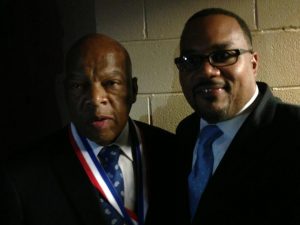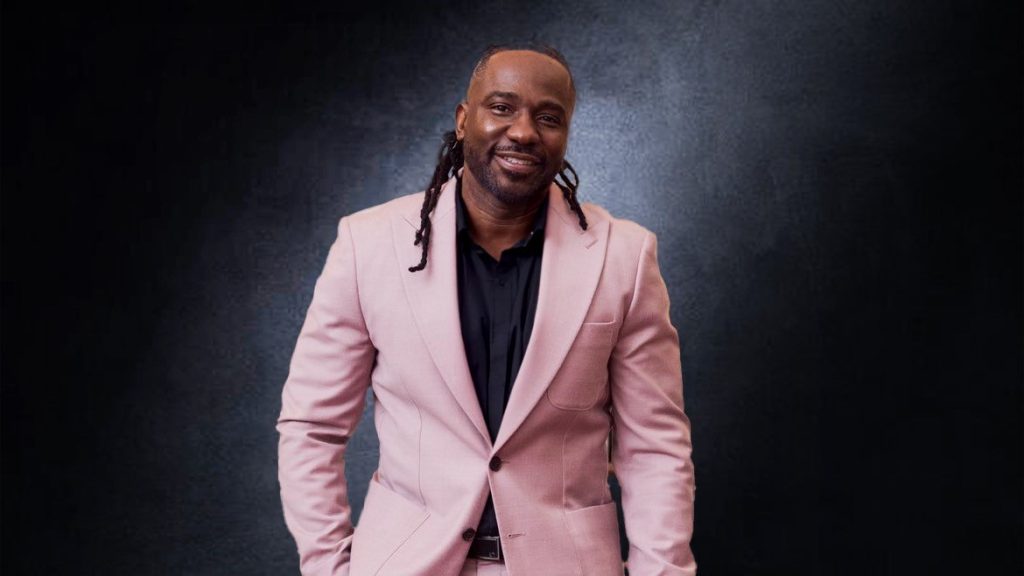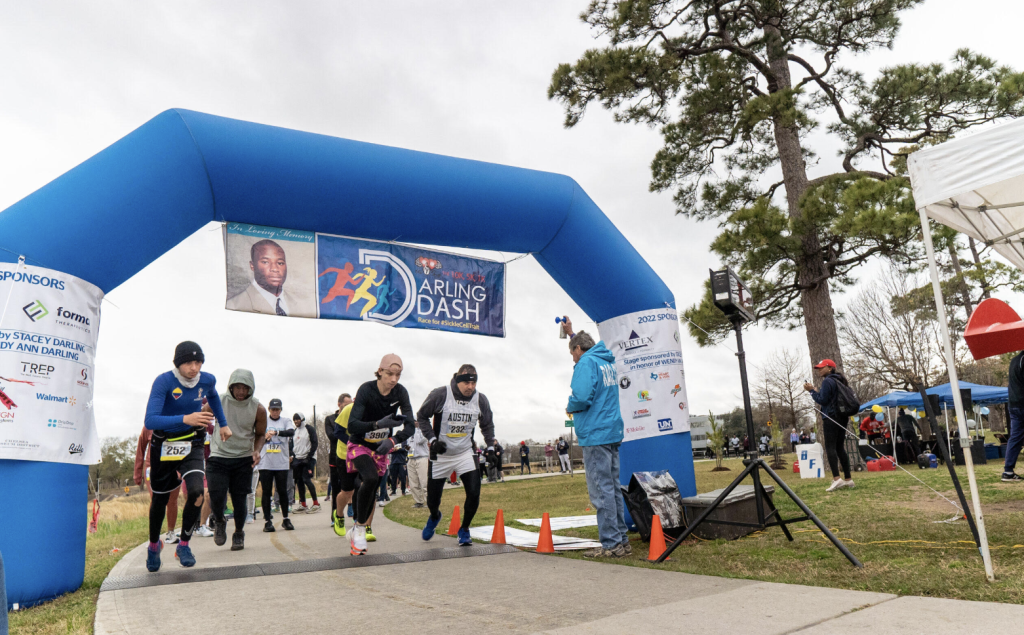‘Good Trouble’: Remembering civil rights icon, U.S. Rep. John Lewis
Written by Vibe Houston Staff on July 18, 2020
He was known for making ‘Good Trouble,’ historically never backing down from a fight in the name of justice and civil rights, and he fought until the very end of what he described as one of his toughest battles. Longtime Congressman John Robert Lewis died Friday after a six-month battle with cancer. He was 80.
Lewis, who was one of the original Freedom Riders, chairman of the Student Nonviolent Coordinating Committee, the youngest speaker at the March on Washington, leader of the march from Selma to Montgomery, Member of Congress representing the people of Georgia for 33 years, was no stranger to struggles. But in December 2019, he announced to the world he had been diagnosed with stage 4 pancreatic cancer.
“I have been in some kind of fight — for freedom, equality, basic human rights — for nearly my entire life. I have never faced a fight quite like the one I have now,” he shared.
When news came that the battle was over, our nation began to mourn.
“It is with inconsolable grief and enduring sadness that we announce the passing of U.S. Rep. John Lewis,” his family said in a statement. “He was honored and respected as the conscience of the US Congress and an icon of American history, but we knew him as a loving father and brother. He was a stalwart champion in the on-going struggle to demand respect for the dignity and worth of every human being. He dedicated his entire life to non-violent activism and was an outspoken advocate in the struggle for equal justice in America. He will be deeply missed.”
 KTSU General Manager Ernest Walker remembered the time he met the civil rights legend who was being honored at “The Evolution of Gospel,” which was held at the Kennedy Center. Walker was a producer for the event.
KTSU General Manager Ernest Walker remembered the time he met the civil rights legend who was being honored at “The Evolution of Gospel,” which was held at the Kennedy Center. Walker was a producer for the event.
“I have admired the work of Congressman John Lewis for many years. His life’s work has truly inspired me to fight for what I believe in and social equality,” Walker said.
No matter what side of the political fence you were on, most, if not all, agree that Lewis was a well-respected leader. Republicans and Democrats shared condolences and fond memories.
Congresswoman Sheila Jackson Lee, U. S. Representative for Texas’ 18th congressional district, remarked on how Lewis would want us to keep moving forward.
“John would say that we cannot wait to improve and restore voting rights. He kept pressing. We cannot wait to fight against children in cages at the border. We cannot wait when gun violence continues to override our nation,” Lee said. “I consider him a beloved friend and I am very happy to have been able to have spoken to him in the last week. He was strong, he was committed and I think his legacy will be the fierceness of now.”
Former President Barack Obama, who honored Lewis with the Presidential Medal of Freedom in 2011, expressed his love and admiration of Lewis.
“I first met John when I was in law school, and I told him then that he was one of my heroes. Years later, when I was elected a U.S. Senator, I told him that I stood on his shoulders. When I was elected President of the United States, I hugged him on the inauguration stand before I was sworn in and told him I was only there because of the sacrifices he made. And through all those years, he never stopped providing wisdom and encouragement to me and Michelle and our family. We will miss him dearly,” Obama wrote.
House Speaker Nancy Pelosi announced his death in a statement, that read, “Today, America mourns the loss of one of the greatest heroes of American history: Congressman John Lewis, the Conscience of the Congress.”
CNN detailed more of Lewis’ legacy.
Lewis, a Democrat who served as the US representative for Georgia’s 5th Congressional District for more than three decades, was widely seen as a moral conscience of Congress because of his decades-long embodiment of nonviolent fight for civil rights. His passionate oratory was backed by a long record of action that included, by his count, more than 40 arrests while demonstrating against racial and social injustice.
A follower and colleague of Martin Luther King Jr., he participated in lunch counter sit-ins, joined the Freedom Riders in challenging segregated buses and — at the age of 23 — was a keynote speaker at the historic 1963 March on Washington.
“Sometimes when I look back and think about it, how did we do what we did? How did we succeed? We didn’t have a website. We didn’t have a cellular telephone,” Lewis has said of the civil rights movement.
“But I felt when we were sitting in at those lunch counter stools, or going on the Freedom Ride, or marching from Selma to Montgomery, there was a power and a force. God Almighty was there with us.”
Lewis has said King inspired his activism. Angered by the unfairness of the Jim Crow South, he launched what he called “good trouble” with organized protests and sit-ins. In the early 1960s, he was a Freedom Rider, challenging segregation at interstate bus terminals across the South and in the nation’s capital.
“We do not want our freedom gradual; we want to be free now,” he said at the time.
At age 25, Lewis helped lead a march for voting rights on the Edmund Pettus Bridge in Selma, where he and other marchers were met by heavily armed state and local police who attacked them with clubs, fracturing Lewis’ skull. Images from that “Bloody Sunday” shocked the nation and galvanized support for the Voting Rights Act of 1965, signed into law by President Lyndon B. Johnson.
“I gave a little blood on that bridge,” he said years later. “I thought I was going to die. I thought I saw death.”
Despite the attack and other beatings, Lewis never lost his activist spirit, taking it from protests to politics. He was elected to the Atlanta city council in 1981, then to Congress six years later.
Once in Washington, he focused on fighting against poverty and helping younger generations by improving education and health care. He also co-wrote a series of graphic novels about the civil rights movement, which won him a National Book Award.
Born to sharecroppers on a Troy, Alabama, cotton farm into a segregated America on February 21, 1940, Lewis lived to see an African American elected president, a moment he said he never thought would come despite his decades long fight for equality.
He described attending President Barack Obama’s 2009 inauguration as an “out-of-body” experience.
“When we were organizing voter-registration drives, going on the Freedom Rides, sitting in, coming here to Washington for the first time, getting arrested, going to jail, being beaten, I never thought — I never dreamed — of the possibility that an African American would one day be elected president of the United States,” he said at the time.
In 2011, after more than 50 years on the front lines of the civil rights movement, America’s first Black president placed the nation’s highest civilian honor, the Presidential Medal of Freedom, placed around his neck.
Ahead of the inauguration of Donald Trump in 2017, Lewis said he did not consider him to be a “legitimate” president, an astonishing rebuke by a sitting member of Congress toward an incoming president and skipped Trump’s inauguration.
“I’ve said to students, ‘When you see something that is not right, not fair, not just, you have a moral obligation to do something, to say something,’” Lewis said in spring 2018. “And Dr. King inspired us to do just that.”
Trump reacted to Lewis’ death Saturday afternoon, saying in a tweet, “Saddened to hear the news of civil rights hero John Lewis passing. Melania and I send our prayers to he and his family.” Earlier Saturday, Trump ordered that flags at the White House and on federal buildings be lowered to half-staff throughout Saturday to honor Lewis.
Lewis also believed in forgiveness.
He once described an incident when, as a young man, he was beaten bloody by members of the Ku Klux Klan after attempting to enter a “white waiting room.”
“Many years later, in February of ’09, one of the men that had beaten us came to my Capitol Hill office — he was in his 70’s, with his son in his 40’s — and he said, ‘Mr. Lewis, I am one of the people who beat you and your seat mate’” on a bus, Lewis said, adding the man said he had been in the KKK. “He said, ‘I want to apologize. Will you accept my apology?’”
After accepting his apology and hugging the father and son, the three cried together, Lewis remembered.
“It is the power in the way of peace, the way of love,” Lewis said. “We must never, ever hate. The way of love is a better way.”
Lewis died on the same day as civil rights leader the Rev. Cordy Tindell “C.T.” Vivian, who was 95.
He will forever be missed.







